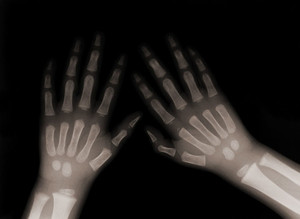According to a study carried out by researchers from Denmark, hepatobiliary adverse events occur at a similar frequency in patients treated with the etanercept biosimilar Benepali (SB4) compared to the originator product, Enbrel, in inflammatory joint disease (IJD) [1].
Hepatobiliary events similar for SB4 and Enbrel in IJD
Biosimilars/Research
|
Posted 29/05/2020
 0
Post your comment
0
Post your comment

Numerous position statements and recommendations have been published from professional organizations on the use of biosimilars on similar terms as their corresponding originators, including switching from originator biologicals to biosimilars [2-5]. However, according to the authors, the comparative safety of biosimilars in patients with IJD in routine care is still debated.
Some of the concerns about safety in IJD have arisen due to the results of a phase III randomized trial among patients with rheumatoid arthritis. In that study, the etanercept biosimilar SB4 had slightly more hepatobiliary adverse events compared with the originator (Enbrel), although this was possibly explained by differences in patients’ co-morbid diseases and co-medication use. The occurrence of, for example, hepatobiliary safety events is likely to differ across indications (due to differences in age, body weight, use of methotrexate, comedication) and has not been explored in etanercept-treated patients with psoriatic arthritis or axial spondyloarthritis.
In April 2016, Denmark implemented a national guideline mandating non-medical switching of all patients treated with the originator etanercept Enbrel to biosimilar etanercept, Benepali (SB4) [6]. The switch was carried out in order to save costs and the 1-year clinical outcomes confirmed the efficacy and safety of the biosimilar [7].
Therefore, in order to investigate whether this was also the case for hepatobiliary events in IJD, the authors carried out an observational cohort study.
A total of 5,708 treatment courses (Enbrel: 2724; SB4: 2984) were identified from 4,719 patients treated with etanercept in the nationwide quality registry, DANBIO. Demographic characteristics were similar between the Enbrel and SB4 groups.
A total of 52% of SB4 patients had switched from Enbrel, 29% had switched from a non-etanercept biological disease-modifying anti-rheumatic drug (bDMARD) and 19% were naïve to biologicals. A total of 41% of Enbrel patients were naïve to biologicals and 59% had used a bDMARD.
A total of 47 hepatobiliary events were identified during follow-up, of which 21 (45%) required hospitalization. A total of 13 (28%) patients with hepatobiliary events received concomitant methotrexate. The incident rates for hepatobiliary events were comparable across the five treatment courses, with no significant differences observed between patients receiving SB4 compared to those receiving Enbrel. The adjusted incident rates for patients in the biologically naïve Enbrel and bDMARD-experienced Enbrel groups were 1.90 (95% CI, 0.66-3.13) and 2.61 (95% CI, 1.37-3.84) per 100 person-years, respectively. In the SB4 treatment groups, adjusted incident rates were 2.42 (95% CI, 0.48-4.36), 0.56 (95% CI, 0.01-1.11) and 3.01 (1.23-4.79) per 100 person-years among patients who were biologically naive, switching from Enbrel or switching from another bDMARD, respectively.
The authors concluded that these results suggest a negative safety signal for hepatobiliary events in patients receiving biosimilar etanercept compared to originator drugs for IJD. Although the risk was lowest among patients switching from Enbrel to SB4, the researchers suggest that this was as a result of prior long-term exposure to Enbrel, rather than any protective effect of SB4. Finally, the authors say that further studies are necessary to explore the differential effects of SB4 compared to Enbrel in the treatment of inflammatory disease.
Related article
Questions over DANBIO relevance for non-medical switching
References
1. Glintborg B, Georgiadis S, Loft AG, et al. Hospital contacts due to hepatobiliary adverse events in >5000 patients with inflammatory joint disease treated with originator or biosimilar etanercept (SB4): an observational nationwide study applying linkage between DANBIO and national registries [published online ahead of print, 2020 Feb 28]. Ann Rheum Dis. doi:10.1136/annrheumdis-2019-216702
2. GaBI Online - Generics and Biosimilars Initiative. Asian specialists’ recommendations for off-patent biologicals in IBD [www.gabionline.net]. Mol, Belgium: Pro Pharma Communications International; [cited 2020 May 29]. Available from: www.gabionline.net/Biosimilars/Research/Asian-specialists-recommendations-for-off-patent-biologicals-in-IBD
3. GaBI Online - Generics and Biosimilars Initiative. ASCO/ASH give recommendations for biosimilar ESAs [www.gabionline.net]. Mol, Belgium: Pro Pharma Communications International; [cited 2020 May 29]. Available from: www.gabionline.net/Biosimilars/Research/ASCO-ASH-give-recommendations-for-biosimilar-ESAs
4. GaBI Online - Generics and Biosimilars Initiative. Oncology pharmacists issue position statement on biosimilars [www.gabionline.net]. Mol, Belgium: Pro Pharma Communications International; [cited 2020 May 29]. Available from: www.gabionline.net/Biosimilars/General/Oncology-pharmacists-issue-position-statement-on-biosimilars
5. GaBI Online - Generics and Biosimilars Initiative. Recommendations published by Canadian breast cancer advocacy group [www.gabionline.net]. Mol, Belgium: Pro Pharma Communications International; [cited 2020 May 29]. Available from: www.gabionline.net/Biosimilars/General/Recommendations-published-by-Canadian-breast-cancer-advocacy-group
6. GaBI Online - Generics and Biosimilars Initiative. Mandatory and non-mandatory switching for biosimilars [www.gabionline.net]. Mol, Belgium: Pro Pharma Communications International; [cited 2020 May 29]. Available from: www.gabionline.net/Biosimilars/Research/Mandatory-and-non-mandatory-switching-for-biosimilars
7. GaBI Online - Generics and Biosimilars Initiative. Danish etanercept switching study investigates withdrawal rates [www.gabionline.net]. Mol, Belgium: Pro Pharma Communications International; [cited 2020 May 29]. Available from: www.gabionline.net/Biosimilars/Research/Danish-etanercept-switching-study-investigates-withdrawal-rates
Permission granted to reproduce for personal and non-commercial use only. All other reproduction, copy or reprinting of all or part of any ‘Content’ found on this website is strictly prohibited without the prior consent of the publisher. Contact the publisher to obtain permission before redistributing.
Copyright – Unless otherwise stated all contents of this website are © 2020 Pro Pharma Communications International. All Rights Reserved.
News
FDA approves Poherdy (first interchangeable pertuzumab) and Armlupeg (pegfilgrastim) biosimilars
EMA recommends approval for insulin glargine biosimilar Ondibta and denosumab biosimilar Osqay
General
Samsung Bioepis wins Pyzchiva case; Regeneron patent rulings threaten foreign biosimilars
Chinese biosimilars go global: growth, partnerships, and challenges
What is the future for the US biosimilar interchangeability designation

Biosimilars/Research Posted 05/06/2025
Biosimilar clinical efficacy studies: are they still necessary?

Biosimilars/Research Posted 27/05/2025
The best selling biotechnology drugs of 2008: the next biosimilars targets








Post your comment